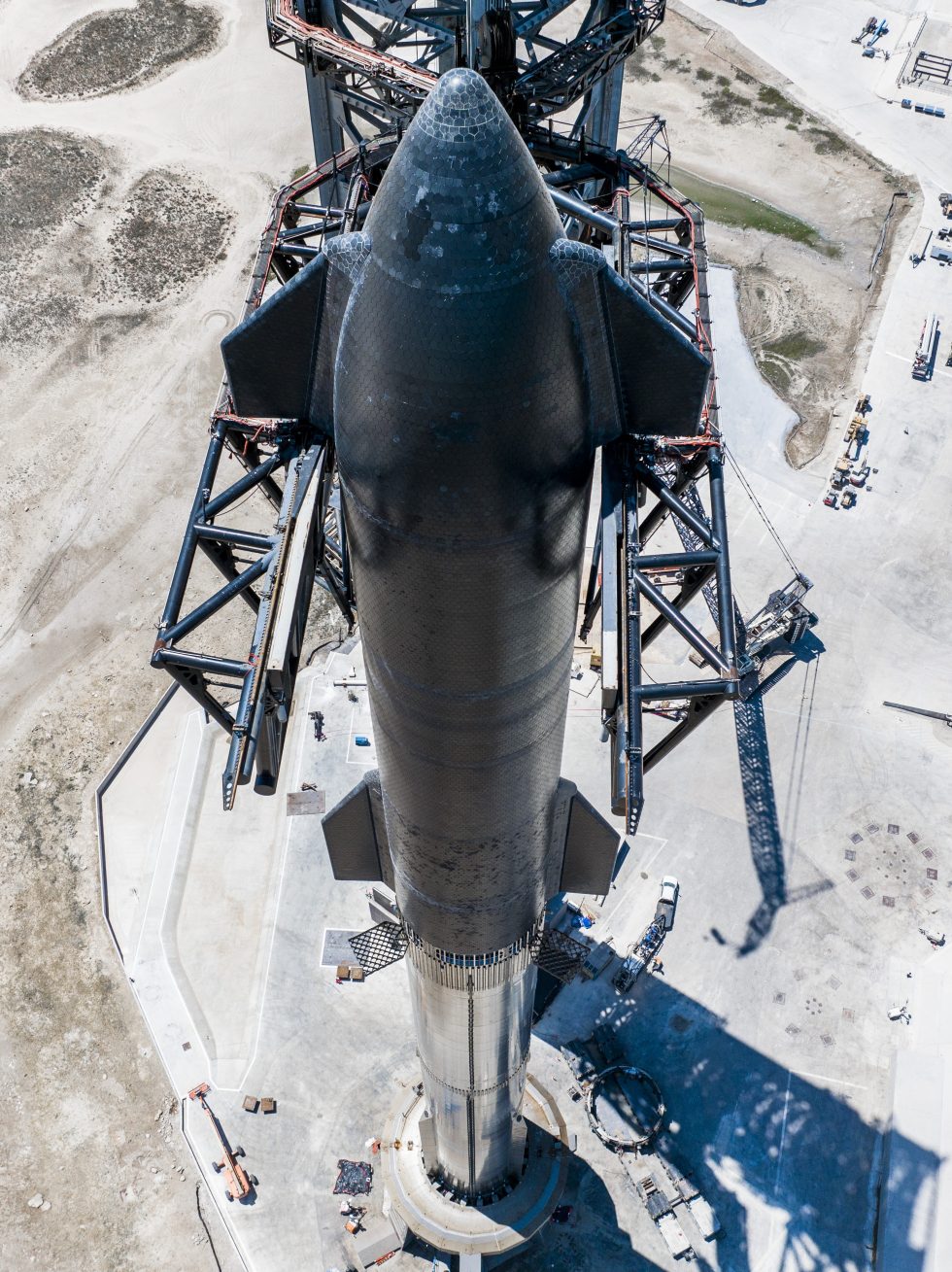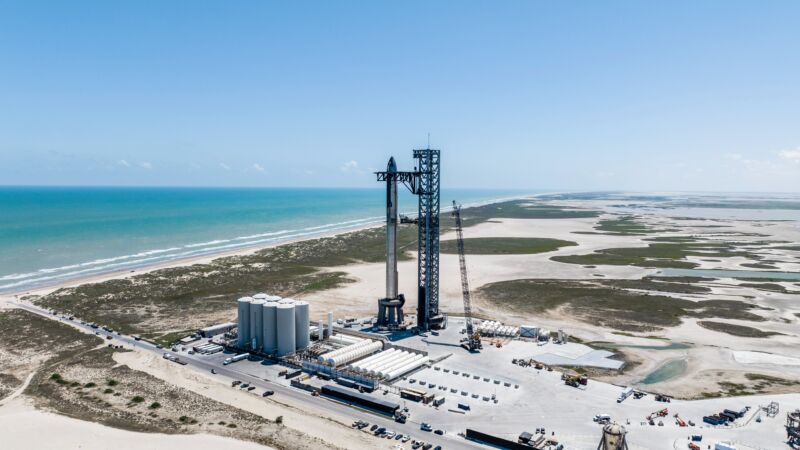On Tuesday, SpaceX stacked its Starship rocket on top of a Super Heavy booster in South Texas, beginning final preparations for a second launch attempt of the massive vehicle.
After the stacking operations were complete, SpaceX founder Elon Musk posted on X, the site formerly known as Twitter, that "Starship is ready to launch, awaiting FAA license approval."
That caveat is a big one because the Federal Aviation Administration is still reviewing paperwork and data from SpaceX about the first launch attempt of Starship in April 2023. That flight ended after about 90 seconds due to engine problems and other issues with the booster. The FAA has been reviewing data from that accident, including the environmental implications at the launch site and the delayed activation of the rocket's flight termination system.
Following this accident, SpaceX prepared and submitted a "mishap investigation report" to the FAA. After reviewing the report, the FAA will identify corrective actions that the company must make ahead of its second test flight to ensure the safety of people, property, and wildlife near the South Texas launch site, which is surrounded by wetlands and the Gulf of Mexico.
Asked for an update on the progress of this regulatory approval, an FAA spokesman said Wednesday morning that additional information may be provided soon. If so, this story will be updated.
Tuesday's stacking operations followed a period of frenetic activity at the South Texas launch site this summer to prepare the ground systems and rocket for a second launch attempt. During the first flight in April, the lack of a sound suppression system led to significant damage, including the rupture of concrete chunks from the launch pad that rained down debris for miles around the Starbase location in South Texas. SpaceX subsequently has built and tested a new water deluge and flame deflector beneath the Starship launch mount.

The company's engineers have also worked to upgrade the interstage area between the first-stage rocket and upper-stage Starship vehicle. This is now called a "hot staging ring," which theoretically will allow the Starship upper-stage engines to ignite before the Super Heavy first stage has completed its burn. This is a difficult maneuver, but if successful, it would increase the mass-to-orbit performance of the launch vehicle.
In recent weeks, SpaceX has also completed two hot fire tests of the rocket, Booster 9, as well as tests of the Starship upper stage, Ship 25. The hardware has largely passed these tests.
During the upcoming test flight, Starship will carry no payloads but will instead seek to demonstrate the performance of the booster's 33 Raptor rocket engines, stage separation, and ignition of Starship's six engines. Under a nominal flight, Starship will complete nearly three-quarters of an orbit around Earth before splashing down in the Pacific Ocean, north of the Hawaiian island of Kauai.
The launch date is pending regulatory approval, but it is not expected to occur before the middle of September.



3175x175(CURRENT).thumb.jpg.b05acc060982b36f5891ba728e6d953c.jpg)
Recommended Comments
There are no comments to display.
Join the conversation
You can post now and register later. If you have an account, sign in now to post with your account.
Note: Your post will require moderator approval before it will be visible.